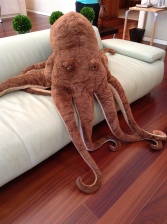
Today begins the formal programming of ScienceOnline Oceans! This afternoon, a series of workshops were available for people to attend. Because I do so much with podcasting in my courses, this one immediately caught my eye:
Ocean science in sixty seconds (or less!)
Led by Emily Darling, Isabelle Cote, and Karen McCleod
No time to read a paper? Listen to it instead! In this hands-on workshop, participants will draw on the COMPASS message box to develop a concise and engaging 60-second podcast of a recent paper. These short audio abstracts are essentially an elevator pitch for your paper and are modeled on 60-second podcasts by Scientific American. Some examples of ocean science podcasts will be shared. We will bring the necessary recording equipment and software to allow you to create your own podcast that you can tweet, blog, link and share!
I registered and was interested to see what I would learn. The session started with a general overview of “what is a podcast” – certainly, it is an audio file, but it also a very short, sharp, and focused nugget of a discovery that has been made. We listened to six different podcasts of varying quality. Some podcasts sounded very monotone (I suggested the term “robotic”) in its delivery, with the author reading word-for-word from a document and stumbling over vocabulary. Some podcasts were put in context, fast-paced, free from jargon, and delivered in short sentences. The 60-Second Science podcasts from Scientific American were great with including rhetorical questions, jokes, metaphors, and pop culture references. All of these items allow the listener to make connections to the audio. One of the key points that I took away from this listening exercise is that a podcast really captures how the recorder reads the words, that it is up to the author to learn how to speak the words in a completely different way.
Next up was an assignment! Each of us was asked to use an excellent sorting tool called the Compass Message Box model with one of our recent articles we have had published and to create a 60-second podcast. We were challenged to think of how we can get from the fire hose (the blast of information) to the water fountain (a stream of information people can manage). We were told especially to focus on SO WHAT? – why does this particular content matter to our target audience? We had to aim for 12-15 short sentences (~1/2 page in MS Word). I had no problem choosing one of my articles, and I really liked filling out the Message Box, as it helped focus my content so much (what a great tool I want to now use with students!). But getting it down to 60 seconds… ugh! OK, so I only got it down to 1 minute 19 seconds… We used Audacity to create/edit the audio and uploaded the file to SoundCloud for streaming and embedding.
Here’s my audio file! (note that I recorded this file while standing outside, so you can hear when the wind picked up and traveled over my microphone) Not too bad for my first try! I’m going to have to look at SoundCloud as a possible tool to use in the future, along with Audacity for my PC-using students (GarageBand works just fine for the Mac and is probably what I will continue to use).
I am going to keep the Message Box very handy to use, but I might make my podcasts 90 seconds. I don’t think that is too much longer of a length to squeeze in some more information (and references to Where’s Waldo?)!
Friday evening started with buses and buses coming to our conference hotel to bring everyone over to the Miami Science Museum. The evening consisted of a panel discussion on Storytelling with Google Earth/Google Oceans, Using MPAtlas to understand how our oceans are protected, and the Deep Sea News network. Did you know that we have Sylvia Earle to thank for the Google Ocean layer? In a talk she gave in 2006, she stated [to Google]: “You’ve done a great job with the dirt. But what about the water?” The MPAtlas is going to be a great tool to play around with to explore global marine protected areas. And Deep Sea News? Craig McClain gave some excellent tips/pointers on how to do (online) outreach (see a SlideShare of his presentation). I need to start following this blog!
Next up was dinner at the museum and the chance to walk through their coral reef exhibit. I’ll let the photos describe this part of the night for me!
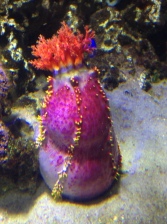
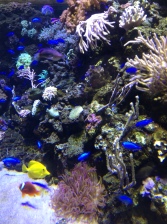
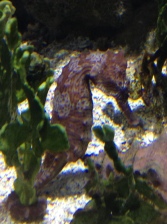 Finally, we were treated to a science-based StoryCollider event, where four marine biologists got on stage and told their stories of their best marine adventures. From the scientist that designed her own board game (Fraction Titanic, where the object of the game is to solve math problems to get to the life boats) to the moderator starting with her “I hate dolphins” story (because dolphins are like the popular girls in school that get all of the attention) I had some great laughs. I absolutely want to see another one of these shows – fortunately, they travel and are in NYC every month!
Finally, we were treated to a science-based StoryCollider event, where four marine biologists got on stage and told their stories of their best marine adventures. From the scientist that designed her own board game (Fraction Titanic, where the object of the game is to solve math problems to get to the life boats) to the moderator starting with her “I hate dolphins” story (because dolphins are like the popular girls in school that get all of the attention) I had some great laughs. I absolutely want to see another one of these shows – fortunately, they travel and are in NYC every month!
Then, it was back to the hotel and time to get ready for a full day of technical sessions on Saturday. I’ve already learned so much and met some great people – I feel the saturation point hitting me very quickly!
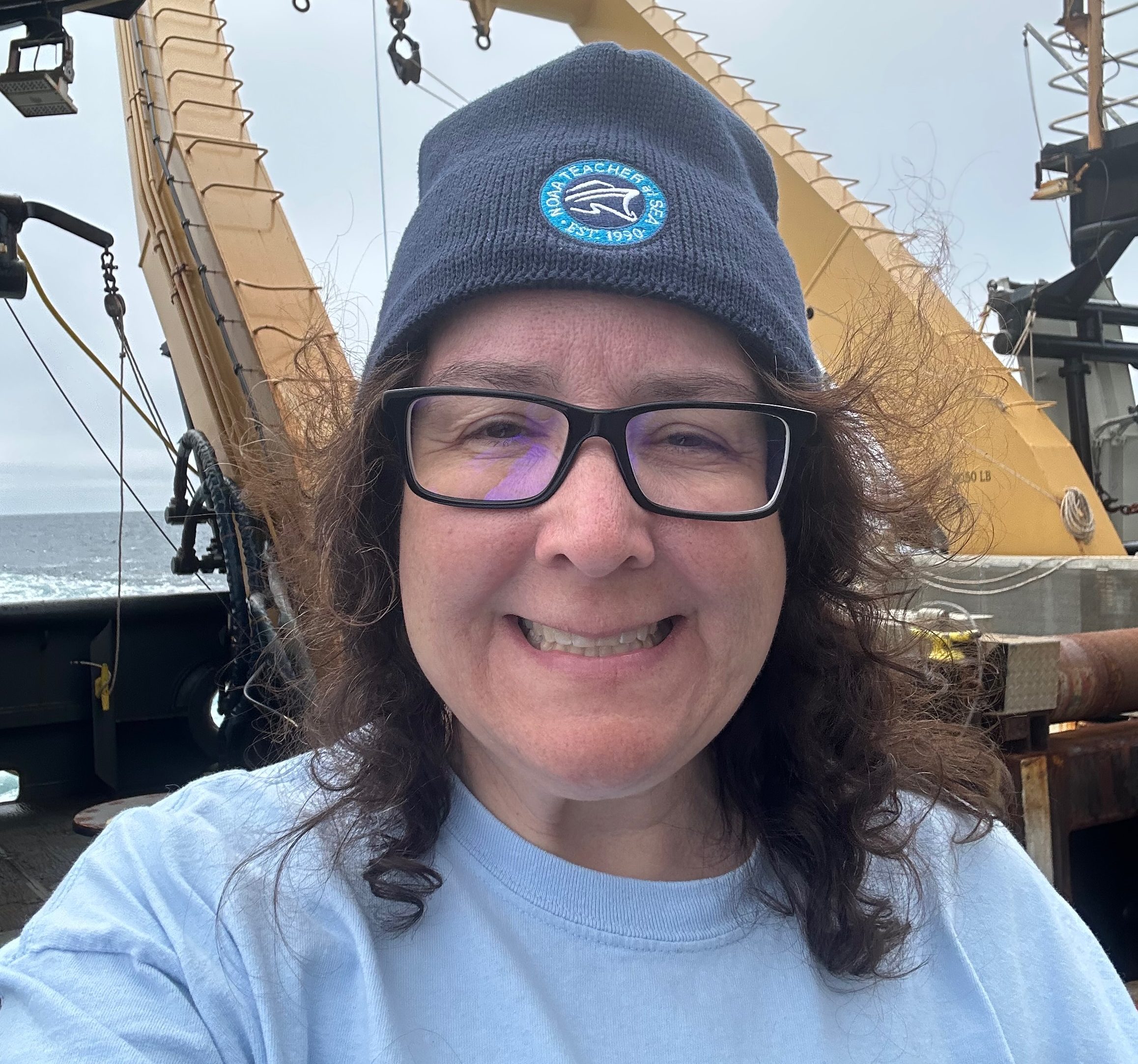
[…] 60-second podcasting workshop – This workshop is how I started the conference, and my excitement for what I learned never diminished the entire time. I can’t wait to spend more time with the COMPASS Message Box and thinking of how I can make my podcasting assignments more meaningful for students. (see my post about the workshop) […]
LikeLike
[…] seminar reminded me of the podcasting workshop at ScienceOnline Oceans I attended, where I struggled to create a 60-second podcast without using any jargon from one of my […]
LikeLike